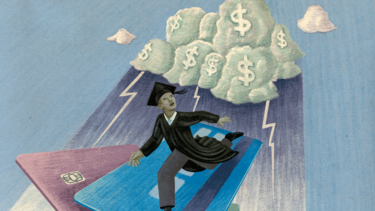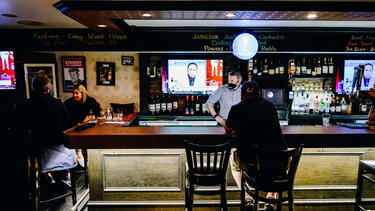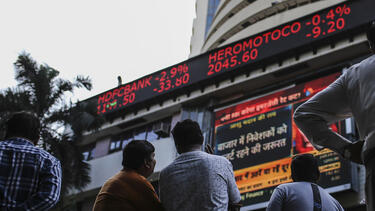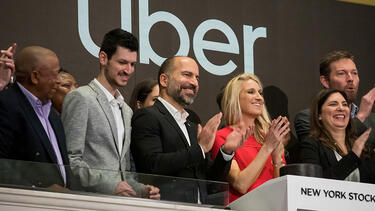Did Student Loan Forbearance Push Distressed Borrowers Further into Debt?
In a new study, Yale SOM’s Heather Tookes and her co-authors find that after loan forebearance went into effect in March 2020, distressed borrowers’ credit scores jumped. That allowed them to take on more credit card and auto debt—and, eventually, led to higher rates of delinquencies.

Can Mergers and Acquisitions Reduce Employee Misconduct?
New research co-authored by Prof. Heather Tookes looks at whether employee misconduct in the highly regulated investment advisory industry goes down after a merger, potentially making the combined company more valuable.

Did COVID-19 Restrictions on Restaurants and Bars Save Lives?
COVID-19 restrictions on restaurants, bars, gyms and salons were among the most controversial and the last to be lifted. A new study looks at whether closures, capacity restrictions, and other limits on these businesses actually lowered the death rate.

Study: Margin Trading Causes Stock Prices to Drop in Concert
During financial crises, stocks tend to fall together more than they should. A new study co-authored by Yale SOM’s Heather Tookes suggests that margin trading plays a substantial role in driving this downward spiral.

Study Shows Which Restrictions Prevent COVID-19 Fatalities—and Which Appear to Make Things Worse
New research from Yale SOM’s Heather Tookes and Matthew Spiegel finds that mask mandates, closing restaurants, and stay-at-home orders are all effective at saving lives, but other commonly used measures can actually worsen the spread of the pandemic.

What’s Next for Alibaba?
The giant China-based conglomerate Alibaba raised more than $13 billion in November in a stock offering on the Hong Kong Stock Exchange. We asked Yale SOM’s Heather Tookes and Matthew Spiegel, who have studied the performance of companies after IPOs, what their research suggests about Alibaba’s prospects and its next steps.

In Finance Field, Gender Disparities Are Significant—But Shrinking
More women are being hired for finance positions at top business schools, according to a study co-authored by Yale SOM's Heather Tookes, but progress is slow. The study suggests that this may be due to limited collaborator networks.

Don’t Be Surprised by Uber’s Low-Priced IPO—It’s a Sign of Challenges to Come
According to Yale SOM’s Matthew Spiegel and Heather Tookes, an IPO is often followed by disappointing returns, not just for the newly public company but its entire industry.

How Does an IPO Affect Rival Firms?
The initial public offering (IPO) market recently saw its busiest week since 2001. A new study by Yale School of Management professors Matthew Spiegel and Heather Tookes reveals how these and other IPOs affect rival firms over time.